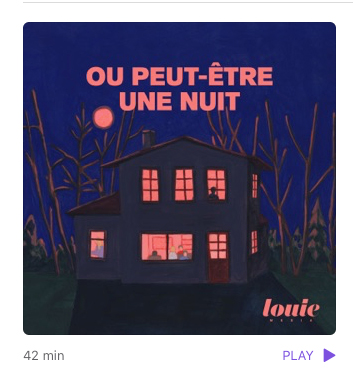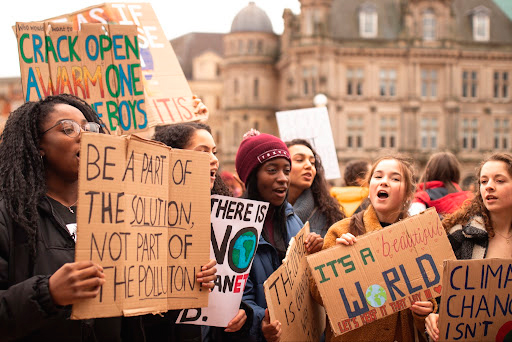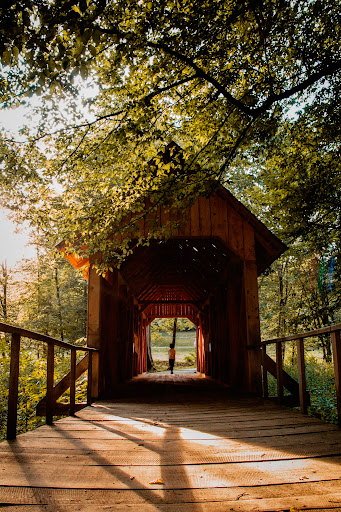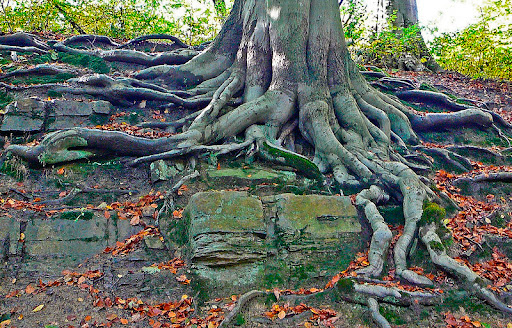In Part #1 of this post, I explored some of the choice points that happened in my life to respond to the call to the path of liberation and nonviolence. Here I want to dive deeper into what I see lying at the roots of oppression, i.e. what we need to liberate ourselves from, and why this inquiry is so integral to my path.
It’s been a difficult piece to write – like the previous one – as I am trying to articulate ideas that often get me into trouble. It feels like walking on egg shells but I find strength in a renewed sense of clarity that speaking up with confidence is supporting me to stay rooted in purpose, and to contribute the best I know how to creating a different world.
When liberation from oppression and violence is mentioned, the question of where violence comes from in us rapidly takes centre stage, leading of course to the whole and hotly debated question of what is ‘human nature’. So despite the challenges, I want to do it not just to find my voice in the matter but also because, as a bridge builder, I am interested in experimenting with language that connects and invites curiosity rather than triggering reactivity.
So let me tell you where I am in this inquiry and where I find support and companionship with it.
I continually find myself astonished at how rarely a systemic lens is applied to our analysis of problems (from the individual to the global sphere), even in contexts when something is obviously deep seated and truly ‘wicked’ as it can be found in countless cultures and throughout history. War as a phenomenon is an obvious example.
 Another grueling one is incest. I have been listening to an excellent series of podcasts in French on the topic recently. I have a huge concern about sexual violence in general. Of course there’s a particular intensity when it comes to the horrendous suffering created by incestuous assaults.
Another grueling one is incest. I have been listening to an excellent series of podcasts in French on the topic recently. I have a huge concern about sexual violence in general. Of course there’s a particular intensity when it comes to the horrendous suffering created by incestuous assaults.Listening to this podcast was of course heart wrenching. The grip of silence surrounding the incestees’ experience and the total inadequacy of our present structures to respond to the problem was particularly impactful. What makes this podcast valuable is that it goes beyond personal stories and touches on wider dimensions such as the influence of the masculinist movement on shaping public opinion and the failure of our approach to justice to generate any change or healing. It also uses terms such as ‘incest as domination’ and even mentions the patriarchal culture as perpetuating the problem and calls “patriarchs” the men who commit such acts. What would have given me a sense of companionship on this journey is to hear the host investigating the patriarchal culture in more depth, what it’s about, why it’s so prevalent and why incest, as a manifestation of it, de facto connects with all forms of violence that find their origins in a system or mindset that pervades all aspects of human functioning. Without naming and engaging with this, we are very far from ending the unspeakable suffering that happens in those families and for all members, the ‘patriarchs’ included.

Another example I am close to is climate change. There isn’t a day when it’s not mentioned in public spaces. Yet how often is it suggested that perhaps, climate change is the result of a much deeper phenomenon than the amount of CO2 emissions created by human activity and consumerism? Could it be that we are dealing here with the inevitable consequences of a paradigm that runs deep in our veins and has shaped so much of human functioning for so long?
Lastly, isn’t it interesting that, although the reality of oppression and violence is omnipresent and widely talked about – or at least ‘denounced’ – liberation in Erika Sherover-Marcuse’s terms (see part#1), is hardly ever mentioned in public discourse?
I am convinced that trying to articulate a reality that very few people are equipped to talk about – even if we are affected by it the world over, is a really important task. I am feeling called to be less shy about it.
As mentioned above, one of the main obstacles is that naming and understanding what we are dealing with is fraught with difficulties. It’s also quite abstract.
Feminist and especially eco-feminist writers have had no hesitation to name patriarchy as being at the root of many of the ‘isms’ we are confronted with: sexism and masculinism of course, but also, racism, capitalism, militarism, classism, colonialism and so on. Connecting the oppression of women and children with the destruction of the earth, and seeing an underlying system of oppression running the show is key to their activism. Recently, I heard V (previously Eve Ensler), playwright and author of the famous “Vagina Monologues”, speaking of “disaster patriarchy”. It was yet again in the context of domestic violence and its increase during the pandemic. In her mind, there’s no doubt that patriarchy is connected to all other forms of violence, including of course the destruction of the planet. It’s rare and precious to hear this from someone who has celebrity status in some quarters.
Marshall Rosenberg, founder of Nonviolent Communication (NVC) was to me, reflecting on these things in quite a novel way. He connected our human predicament to the existence of “domination structures”, fed by particular narratives about human nature, internalised through socialisation (hence why he was so passionate to transform the education system) and leading to harmful individual, group and institutional behaviour. His thinking was shaped by a number of radical thinkers including theologian Walter Wink, author of “The Power that Be”, and Riane Eisler, cultural historian and author of the seminal book “The Chalice and the Blade” on the origins of patriarchy. Then I discovered the writings of Miki Kashtan who summarises the arguments that patriarchy was likely born from a series of traumatic events (climatic and otherwise) leading to scarcity and leaving tribes of early humans to turn to killing, invasion and violent domination as last resort strategies for survival. She writes about this in depth here.
There’s now plenty of well researched archeological and other evidence that lead scholars in the field of matriarchal studies to claim that early human societies were in large part stable, peaceful and egalitarian. Only after patriarchy appeared and spread across “Old Europe” that remains of mass graves, fortifications and weaponry started to appear. Humberto Maturana and Gerda Verden-Zoller in “The Origin of Humanness in the Biology of Love” go even further by asserting “that human beings belong to an evolutionary history in which daily life was based on cooperation and not domination and submission … [and in which] the basic emotion or mood was love and not competition and aggression.” Miki writes, “Lest there be any doubt in the matter, they add that ‘this is a biological claim, not a philosophical one.’ In this, humans evolved separately from chimpanzees, forming a different lineage despite how close we are genetically, because we have conserved the loving nature of mother-child relationship into adulthood, a period of life in which for other mammals the prevalent mood is one of dominance-submission relationships.”
Most interestingly, Miki decouples patriarchy from being a phenomenon directly related to men. She emphasises that in a patriarchal society, both men and women are patriarchal. They are both affected and shaped by patriarchy in different ways, though of course men occupy the dominant position, and essentially everybody is at the mercy of patriarchal functioning. On the other hand, she argues that a society where human needs and caring for the whole are the organising principles, both men and women are oriented towards care, although in different ways.
She writes:
Patriarchy is not the same as sexism; patriarchy is to sexism very much what structural racism is to (interpersonal) racism: it’s a system that runs independently of any one person’s attitudes or behaviors. As I understand it, patriarchy is the original separation, and it restructured both institutions and thinking. At its core, it’s a separation from life, from self, from others, and from nature. Capitalism, racism, and all the other forms of exploitation, oppression, war, and now environmental degradation, could only come into being because patriarchy already primed us for them.
Of course, humility is fundamental in this debate. Nobody knows how we would have evolved as a species if patriarchy hadn’t appeared on the scene. It’s unlikely we’ll ever know the exact conditions of its emergence. Whether patriarchy is indeed the umbrella paradigm that makes all forms of oppression possible, can and will endlessly be debated, and so will whether we are born with its seeds in us or not. Irrespective of where we are in this debate, it’s critical we find ways to speak about it. To quote V (formerly Eve Ensler) again: “we need to focus on patriarchy as something real, as a system, and we need to dismantle it”.
 The implications of all this are revelatory. They suggest that violence may in fact not be part of our human nature: given the right conditions, humans know how to, and can live together peacefully, and respecting one another and the earth for hundreds of years at a time . Having said that, there’s of course also fragility in us which leads to endorsing and building entire societies on violent force. We are obviously far from immune to violence, but it doesn’t necessarily mean that it is carved in our genes. It goes without saying that most people find it very difficult to believe in this version of ‘human nature’.
The implications of all this are revelatory. They suggest that violence may in fact not be part of our human nature: given the right conditions, humans know how to, and can live together peacefully, and respecting one another and the earth for hundreds of years at a time . Having said that, there’s of course also fragility in us which leads to endorsing and building entire societies on violent force. We are obviously far from immune to violence, but it doesn’t necessarily mean that it is carved in our genes. It goes without saying that most people find it very difficult to believe in this version of ‘human nature’. In my role of bridge-builder, finding the language that connects and deepens conversations or work on the ground is not a small feat. Naming patriarchy brings up a lot of reaction (especially amongst men, but also in some women). It’s become such a loaded word. The terms ‘command and control’ tend to land a little softer. I am now playing with “toxic socialisation” and getting some promising results. Domination paradigm doesn’t do it – it’s too abstract, too academic. Domination societies or cultures is slightly better. Hegemony is also used in some settings. To me, it’s better than nothing, but it keeps invisible many defining patterns of patriarchy.
 So to bring this piece to an end, I hope it has become obvious that my journey with liberation has led me to deeply inquire into the roots of oppression and to find ways to speak about them. I hold this inquiry with reverence. I see it as a spiritual practice. The levels of impoverishment, emotional distress, physical illnesses, protracted conflicts, obscene wealth in some quarters, and devastating climate change call on us to dig deeper. Nothing short of turning our full attention to the legacy of patriarchy (or however other terminology you may adopt) and developing the courage to grapple with the pain it has inflicted on us and the earth, will get us out of this mess.
So to bring this piece to an end, I hope it has become obvious that my journey with liberation has led me to deeply inquire into the roots of oppression and to find ways to speak about them. I hold this inquiry with reverence. I see it as a spiritual practice. The levels of impoverishment, emotional distress, physical illnesses, protracted conflicts, obscene wealth in some quarters, and devastating climate change call on us to dig deeper. Nothing short of turning our full attention to the legacy of patriarchy (or however other terminology you may adopt) and developing the courage to grapple with the pain it has inflicted on us and the earth, will get us out of this mess. As contradictory as it may seem, it’s precisely because I have embraced the reality of patriarchy and its legacy that I have hope for humanity. I recognise its powerful and forceful presence; I can dialogue with it. I have deep grief, and at the same time empathy for its manifestations. And I am part of a group that’s entirely devoted to finding practical and radical ways to get us out of its grip. There’s true richness in all of this. I am grateful.
Photos credits:
Louie media podcasts – Injustices
School protest – Callum Shaw – Flickr
ASTRA National Museum Complex, Sibiu, Romania – Adrian Dascal – Unsplash
Roots – Tim Green – Unsplash